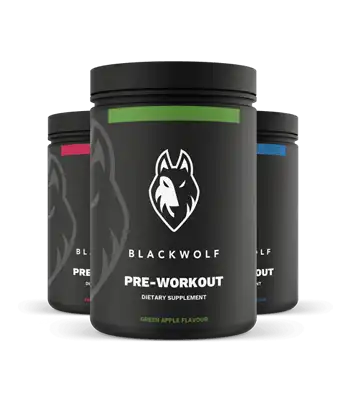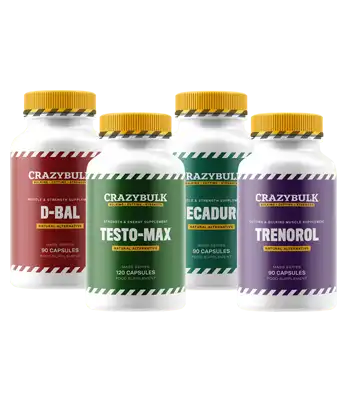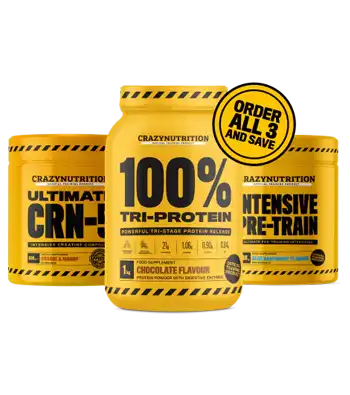Overview
When trying to shed those extra pounds, we often hear about cutting calories and hitting the gym. And yeah, those things are definitely important. But here’s the thing – protein also plays a major role in weight loss, and it’s something most folks tend to overlook.
So, How Much Protein is Recommended Every Day to Lose Weight?
Well, Protein isn’t just an ordinary nutrient. It’s like the secret weapon that supports our overall health, helps build muscles, and revs up our metabolism.
Now, I get it. Figuring out how much protein you need daily for optimal weight loss can be confusing. That’s why today, we’ll dive into the science behind protein and weight loss, uncovering the recommended daily intake to help you reach your goals effectively.
Ready? Let’s get you in shape!
Understanding Protein
Let’s start with the basics…
What is Protein?
Protein is one of the three macronutrients, alongside carbohydrates and fats, that our bodies need in significant quantities to function properly. It is made up of amino acids, aka the building blocks of life.
These amino acids help in various bodily functions, including cell repair, hormone production, and muscle development[1].
Protein is crucial for our overall health and plays a key role in weight loss. When we eat foods rich in protein, our bodies put in extra effort to break them down and absorb them. The result? A higher calorie burn.
Moreover, protein keeps us feeling full and satisfied, making it less likely for us to overeat or reach for unhealthy snacks. We’ll delve into these benefits further later in the article.
The bottom line? By understanding the significance of protein in weight loss, you can make informed decisions about your dietary choices and maximize your weight loss potential.
Types of Protein
There are two primary categories – animal-based and plant-based proteins. Let’s take a closer look at each:
Animal-based Proteins
These include sources such as meat, poultry, fish, eggs, and dairy products. Animal proteins are what we’d otherwise call “complete” proteins. Why, you ask? They contain all the essential amino acids our bodies need. They are also typically rich in nutrients like vitamin B12, iron, and zinc[2].
Animal-based proteins are often valued for their high bioavailability, meaning they are easily absorbed and utilized by our bodies. This makes them an excellent choice for individuals looking to build and maintain muscle mass[3].
However, some animal-based protein sources can also be high in saturated fat and cholesterol, so be sure to choose leaner protein options like skinless chicken breast, turkey, fish, tofu, or legumes. Doing so, and practicing moderation will have you enjoying the benefits of proteins without the drawbacks of excessive saturated fat and cholesterol.
Plant-based Proteins
These include legumes (beans, lentils), whole grains, nuts, seeds, and certain vegetables. Plant-based proteins can be incomplete meaning they do not contain all the essential amino acids[4]. However, you can still obtain all the necessary amino acids by combining different plant-based protein sources throughout the day.
Plant-based proteins have the added benefit of lowering saturated fat and cholesterol while providing essential fiber, vitamins, and minerals [5].
They are also often rich in phytochemicals and antioxidants, linked to various health benefits. Plant-based diets have gained popularity due to their potential positive impact on overall health and the environment.
Pro-tip: Whether you choose animal-based or plant-based proteins, it’s essential to prioritize variety and balance in your diet. By incorporating a mix of both protein sources, you can ensure you get a range of nutrients necessary for optimal health and weight management. Consider personal preferences, dietary restrictions, and ethical considerations when making this important decision.
Protein Sources
Proteins can be found in various animal- and plant-based foods. Here are some comprehensive protein sources to consider:
Animal-based protein sources:
- Meat: Such as chicken, turkey, beef, pork, and lamb. These provide high-quality protein and essential nutrients like iron, zinc, and vitamin B12.
- Poultry: Including chicken and turkey breast, which are lean protein sources and low in saturated fat.
- Fish and seafood: Such as salmon, tuna, shrimp, and cod. These are rich in protein and provide omega-3 fatty acids with numerous health benefits.
- Eggs: A complete protein source that contains all the essential amino acids. They are versatile and can be prepared in various ways.
- Dairy products: Including milk, yogurt, cheese, and cottage cheese. These are excellent sources of protein, calcium, and other essential nutrients.
Plant-based protein sources:
- Legumes: Such as beans, lentils, chickpeas, and peas. These are high in protein, fiber, and various vitamins and minerals.
- Tofu and tempeh: Soy-based products that are rich in protein and often used as meat substitutes in vegetarian and vegan diets.
- Quinoa: A pseudo-grain that contains all the essential amino acids. It is an excellent option for those following a plant-based diet.
- Nuts and seeds: Including almonds, walnuts, chia seeds, and flaxseeds. These are not only a good source of protein but also provide healthy fats and other essential nutrients.
- Whole grains: Such as brown rice, oats, barley, and whole wheat. While they may not be as high in protein as other sources, they still contribute to overall protein intake and provide fiber and other essential nutrients.
Alternative protein sources:
- Plant-based meat substitutes: Like tofu-based products, seitan, and plant-based burgers. These are becoming increasingly popular and offer a meat-like texture and taste while entirely plant-based.
- Protein powders and supplements: Including whey protein, pea protein, and soy protein isolate. These can be convenient options for individuals who struggle to meet their daily protein needs through whole foods alone.
Note: The amount of protein in different sources can vary, and everyone’s needs can be different too. Animal-based proteins usually have all the essential amino acids, but with plant-based proteins, you might need to combine them to get everything you need. It’s also a good idea to mix it up and try different protein sources to get a variety of nutrients.
Recommended Daily Protein Intake for Weight Loss
Health organizations such as the World Health Organization (WHO), the Dietary Guidelines for Americans, and the Academy of Nutrition and Dietetics provide general guidelines for protein intake. According to these guidelines, adults should consume a minimum of 0.8 grams of protein per kilogram of body weight per day[6].
But here’s the thing to keep in mind – this recommendation is designed for your average person who doesn’t do a whole lot of physical activity. If you’re trying to shed some pounds or get active on a regular basis, you might need more protein than this guideline suggests.
Factors Influencing Protein Requirements
- Body weight and composition: Generally, individuals with higher body weight or more lean muscle mass require more protein. Adequate protein intake helps support muscle protein synthesis and prevent muscle breakdown.
- Activity level: If you love to get moving and stay active, remember that your body needs a bit more protein than those who prefer a more laid-back lifestyle. Whether you’re into endurance sports or hitting the weights, your muscles need that extra boost to recover and adapt from all your hard work.
- Age: Older adults tend to experience muscle loss and reduced muscle protein synthesis rates, a condition known as sarcopenia[13]. To combat this, older adults may require slightly higher protein intake to preserve muscle mass and function.
- Health status: Certain conditions, such as injuries, illnesses, or chronic diseases, can increase protein requirements. Protein is vital for tissue repair, wound healing, and immune function. Individuals recovering from surgeries or injuries, or those with chronic conditions like burns or infections, may need additional protein to support the healing process and maintain overall health[14].
- Pregnancy and lactation: During pregnancy, a woman’s protein needs increase to support fetal growth and development[15]. Adequate protein intake is crucial for forming new tissues, including the placenta and the baby’s organs; and supporting milk production in lactating mothers.
- Goals: Individuals aiming for muscle gain or bodybuilding typically require higher protein intake to support muscle protein synthesis and promote muscle growth. On the other hand, during weight loss, adequate protein intake helps preserve lean muscle mass while promoting fat loss.
Guidelines for Calculating Protein Needs for Weight Loss
Calculating protein needs for weight loss weight loss involves determining the appropriate amount of protein to consume while creating a caloric deficit. Here’s a general guideline to help you calculate your protein needs during weight loss:
- Determine your weight loss goal: Start by setting a realistic weight loss goal. This can be a certain number of pounds or a percentage of your current body weight that you aim to lose over a specific period.
- Calculate your calorie deficit: To lose weight, you need to create a calorie deficit, which means consuming fewer calories than you burn. A safe and sustainable weight loss rate is generally around 0.5-1 pound per week. To achieve this, create a daily calorie deficit of approximately 500-1000 calories.
- Determine your protein intake: Protein needs during weight loss usually range from 0.8-1 gram per pound of body weight. However, individual requirements may vary based on activity level, muscle mass, and overall health.
- For moderate activity levels: Multiply your weight in pounds by 0.8-1 gram to calculate your daily protein intake. For example, if you weigh 150 pounds, your protein intake would range from 120-150 grams daily.
- For higher activity levels or intense exercise: Adjust your protein intake towards the higher end of the range (1 gram per pound of body weight) to support muscle recovery and repair.
- Distribute protein intake throughout the day: Aim to evenly distribute your protein intake across your meals and snacks throughout the day. This helps provide a steady supply of amino acids for muscle protein synthesis and maintenance.
Protein Per Kilogram of Body Weight
Protein per kilogram of body weight is used to calculate an individual’s recommended protein intake. A higher protein intake is often recommended for weight loss purposes and to support muscle maintenance.
It is generally recommended to consume between 1.2 to 2 grams of protein per kilogram of body weight for weight loss efforts. To determine your specific protein needs, simply multiply your weight in kilograms by the desired protein intake range.
Let’s put this into perspective.
For example, if you weigh 70 kilograms, your protein intake could range from 84 to 140 grams daily.
Balancing Protein with Other Macronutrients
Sure, protein is important, but let’s not forget about our other nutrient buddies – carbohydrates and fats. They all play a crucial role in keeping our bodies nourished and happy. So, how do we strike that balance? Well, here’s the scoop:
- Set protein goals: Determine your protein requirements based on factors such as age, sex, weight, activity level, and health goals. The Recommended Dietary Allowance (RDA) for protein, as we already mentioned, is 0.8 grams per kilogram of body weight per day for most adults. However, athletes, pregnant women, and individuals with specific health conditions may require higher protein intakes.
- Include carbohydrates: Carbohydrates are a primary energy source for the body. Choose complex carbohydrates like whole grains, fruits, vegetables, and legumes for sustained energy and fiber. Try to include a variety of carbohydrates in your meals to provide essential nutrients and support overall health.
- Incorporate healthy fats: Fats are essential for hormone production, absorption of fat-soluble vitamins, and overall well-being. Opt for sources of healthy fats such as avocados, nuts, seeds, olive oil, and fatty fish. Balancing protein with adequate healthy fats can help provide satiety, support brain health, and promote nutrient absorption.
- Be mindful of portion sizes: Pay attention to portion sizes to ensure you get the right balance of macronutrients. Let me fill you in on a simple hack – fill about a quarter of your plate with a good protein source, another quarter with complex carbohydrates, and the remaining half with vegetables and a small serving of healthy fats. Works every time for me!
- Variety is key: Include a variety of protein sources, such as lean meats, poultry, fish, dairy, eggs, legumes, and plant-based proteins like tofu and tempeh. Similarly, choose a wide range of carbohydrate and fat sources to ensure you get diverse nutrients.
- Seek professional guidance: If you have specific dietary needs or health concerns, consulting a registered dietitian can provide personalized advice and help you develop a well-balanced meal plan that suits your individual requirements.
Pro-tip: Balance and moderation are key when it comes to macronutrients. Aim for a varied and nutrient-rich diet that incorporates appropriate amounts of protein, carbohydrates, and fats to support overall health and well-being.
Who Shouldn’t be On a Protein Diet?
Certain individuals may need to exercise caution or avoid high-protein diets. Well, these recommendations may vary depending on individual health conditions and specific dietary needs. Here are some groups of people who should approach high-protein diets cautiously:
- Individuals with kidney disease: High-protein diets can put extra strain on the kidneys, which may be problematic for individuals with pre-existing kidney conditions. Consulting a healthcare professional or registered dietitian is crucial for those with compromised kidney function.
- People with liver disease: Liver diseases such as cirrhosis may impair the liver’s ability to process protein. In such cases, a lower protein intake may be recommended. Medical guidance is essential for individuals with liver disease.
- Individuals with certain metabolic disorders: Certain metabolic disorders like phenylketonuria (PKU) may require strict protein restrictions. These individuals need specialized medical advice to ensure their dietary protein intake meets their needs.
- Pregnant women: While protein is important during pregnancy, excessive protein intake may pose risks. Pregnant women should consult with their healthcare provider or a registered dietitian to determine their specific protein requirements.
- Individuals with gastrointestinal issues: Some people with certain digestive disorders, such as irritable bowel syndrome (IBS) or inflammatory bowel disease (IBD), may have difficulty digesting and tolerating high amounts of protein. Adjusting the type and amount of protein in their diet may be beneficial, and a healthcare professional can provide appropriate guidance.
- Those with specific allergies or intolerances: Individuals with allergies or intolerances to certain protein sources should avoid or limit their consumption. Let’s make it more relatable – For example, individuals with lactose intolerance should be cautious with dairy-based proteins, while those with shellfish allergies should avoid shellfish-based proteins.
![verdict]() Conclusion
Conclusion
Finding the right amount of protein for weight loss is key. Aim for a moderate, high-protein diet within the recommended range to preserve muscle, feel fuller, and boost your metabolism. Don’t forget to balance your meals with other essential nutrients. For personalized guidance, consult a registered dietitian. Achieve sustainable weight loss through a healthy diet and regular exercise. Now go on and harness the power of protein and kick those pounds to the curb!








